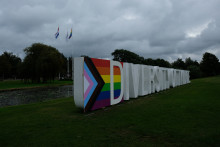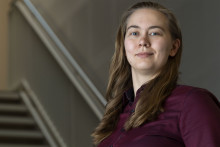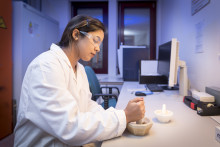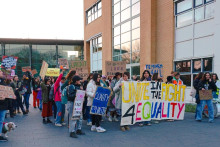International Women's Day is celebrated every year on the 8th of March, but the festivities at the University of Twente will already begin a day earlier and last until Friday, 10th of March. The underlying idea behind the event series is to create a ‘positive atmosphere,’ says Verena Menzel, one of the main organizers of the series of events.
‘It’s a great cause to celebrate women,’ thinks Menzel. ‘Yes, there are things that are wrong and that we need to work on - at the UT and worldwide -, but this day should serve as a possibility to connect, be inspired and offer encouragement.’
The programme contains a variety of events, including lectures and workshops on campus, but also a march for women’s rights held in the Enschede city center. The march is organized by Amnesty UTwente and should be a ‘fun activity’ to acknowledge women’s contributions, explains Menzel. ‘It’s a celebration, rather than a protest. It also helps us to make the day more visible. If we only have a nice keynote lecture, we close the doors and nobody knows. A march through the city creates more awareness.’
The Technology for Women's Health pillar will host a session on women's health on 8th of March from 14:00 - 16:30 in the Atrium Technohal. The interactive session includes presentations, panel discussions and showcasing of UT technology and research on a broad range of women's health topics, such as vitality and fatigue, pelvic organ prolapse, breast cancer and menstruation.
The series of events has been put together by UT initiatives that work on issues related to women’s rights and gender equality, such as PhD group EQUITY, Female Faculty Network Twente, Amnesty UTwente, DE&I Office and many more. ‘We wanted to connect all the great UT initiatives that work on gender equity and diversity & inclusion,’ says Menzel. ‘This way we were also able to create a programme that attracts different groups – students, PhDs, scientific and support staff.’







